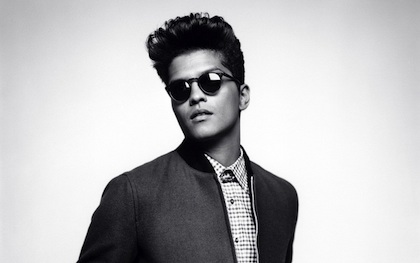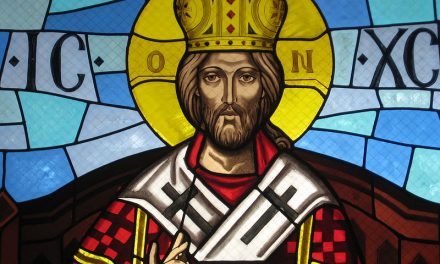On Mondays throughout the year, New Wine New Wineskins, a fellowship of early-career moral theologians, shares posts from members. This week, Catherine Duggan shares from some of her dissertation research on democratic theory and civic virtue. For more information about the upcoming 2024 NWNW annual conference, held this July at the University of Notre Dame, and how to submit a proposal, see the Call for Papers here. And, as always, check back each Monday for more content from New Wine New Wineskins!
I have been spending a lot of time reading contemporary political and legal theorists writing about civic virtue. The authors I have been spending the most time with are Danielle Allen, Martha Nussbaum, John Rawls, Linda McClain, and Collis Tahzib. As part of the research process for my dissertation, which examines the capacity of our laws to cultivate virtue, I have been reading about contemporary virtue proposals found in political and legal theory. I am interested in the ways these theorists understand civic virtue, particularly the way they tailor their virtue proposals in order to adhere to a framework of political liberalism.
Let me provide a snapshot of one text I am reading. Political theorist Danielle Allen, in her 2023 book, Justice by Means of Democracy, devotes the last chapter to offering a new model of democratic citizenship. She writes that the standards citizens of a democracy must rise to are high. They are tasked with meeting both “intellectual burdens” and “relational challenges.” The intellectual burdens include “an initial need to process abstract conceptualizations of power and agency to a degree that can sustain seeing the decisions of public bodies as belonging to the society as a whole” and “an ability to make judgments about collective social directions” (205-6). Meeting these challenges demands formulating “some view of the direction in which they’d like to see their society move,” which may be “a more complex view about what constitutes some sort of common good or desirable shared fate” (205).
As for relational challenges, Allen states that it is imperative for democratic citizens to foster “habits of belonging and bridging” (209). Fostering a feeling of belonging requires “recogniz[ing] and enable[ing] the equal capacities of all to deliberate, decide, and take responsibility” (211). Citizens also need to learn how to “empower each other as cocreators,” that is, to enable others to achieve their full capacity and purposes (210). Finally, citizens need to learn how to practice techniques of non-violence.
As I want to argue more at length in my dissertation, I believe that, insofar as Allen is calling for certain intellectual and volitional excellences, she is calling for civic virtues—political prudence and justice, to start. And yet, in this work, Allen endorses her earlier proposal, in Talking to Strangers, in which she says she is calling not for proper emotions, but for skills (222). Adam Eitel has noticed here that this is a sidestep away from virtue. And so, we are left with the question: is Allen calling for civic virtue, or something like civic virtue?
This question can be raised to a number of other authors’ proposals as well, but I will not go into all of them. It is clear that, at present, political and legal theorists are keen to articulate the virtues necessary for strengthening a democratic society, as are Christian ethicists. Yet, the challenge is this: a number of these proposals recommend virtue for the sake of good citizenship, as distinct from human flourishing in general. Many authors insist that they are holding to the framework of political liberalism that refrains from enforcing or recommending virtues for personal life. And yet, each in their own way, I would argue, admits the difficulty of holding this line. Allen justifies the need to meet the epistemic and relational challenges of democracy by invoking the fact that we are “creatures with purposes” and a desire for happiness (206-7). Though she describes herself as a eudaimonist, she says hers is a eudaimonism linked to pragmatism, not metaphysics. Elaborating on this remark, she notes, “This means it is linked to practices of judgment, not permanently fixed to algorithmically accessible metrics of well-being, whether established deontologically or teleologically” (11). That said, if her claim that we are happiness-seeking creatures means something, “happiness” has to point us towards some things and away from others, right?
Another theorist, Martha Nussbaum, argues in her 2013 book Political Emotions that democracy needs some secular version of the virtue of love, so that citizens love the political principles of justice. Like Allen, she invokes Rawls’s vision of political liberalism as her framework. In that vein, she writes that, “public emotions ought to be both narrow and shallow, compared to the comprehensive doctrines that citizens hold. Occasionally, for urgent purposes, they may use the depth and resonance of one of those doctrines, but they had better counterbalance this gesture immediately by a commitment to pluralism and equal respect” (133). Just after, she adds, “As for shallowness, the political culture of emotion should not support itself by drawing on theological or metaphysical traditions. But there is no reason why it cannot draw on empirical psychology, on studies of the relationship between humans and animals in primatology, and on studies of prejudice in history and sociology” (134). And yet, Nussbaum’s theory of emotions includes the view that they are “‘eudaimonistic,’ meaning that they appraise the world from the persons’ own viewpoint and the viewpoint, therefore, of that person’s evolving conception of a worthwhile life” (11). The question is, how is a person, a citizen, supposed to harbor the emotion of love for a political principle, a love that is meant to be both “shallow” and to contain within it some judgment that it is beneficial for one’s flourishing?
At this point, it seems to me that democratic theorists like Allen and Nussbaum are wading into the waters of virtue ethics, with a particular theory of virtue and its cultivation. As I see it, there are two problems with their virtue proposals. Either these authors ultimately resort to teleological justifications for their arguments, which include arguments for citizens to cultivate moral and intellectual excellences, despite initially eschewing such justifications. This would be Allen’s proposal. Or these authors admit that their virtue recommendations cannot help but possibly influence people’s judgments about their own flourishing or their “private” interactions with family and friends. This includes Nussbaum, Rawls, and McClain.
The point I want to make is that the current accounts of and justifications for civic virtue emerging from political and legal theory seem unstable. And yet, these instabilities can highlight some of the clarifications Christian ethicists may need to make about virtue. I would name two to start. First, what is the relationship between the practice of different virtues and cognizance of one’s final end. Do all virtues–moral, theological, infused–orient us to the final end in identical ways? Second, can a conception of the common good can be expansive enough as to encompass the flourishing of a wide array of human practices and communities, so long as those practices and communities still meet basic human needs, which are admitted as such. Without some clarification on these matters, I think these prominent prescriptions for civic virtues remain confusing.
Catherine Duggan is a fourth-year doctoral student at Notre Dame studying moral theology, focusing on Thomistic and Augustinian political and legal thought.




